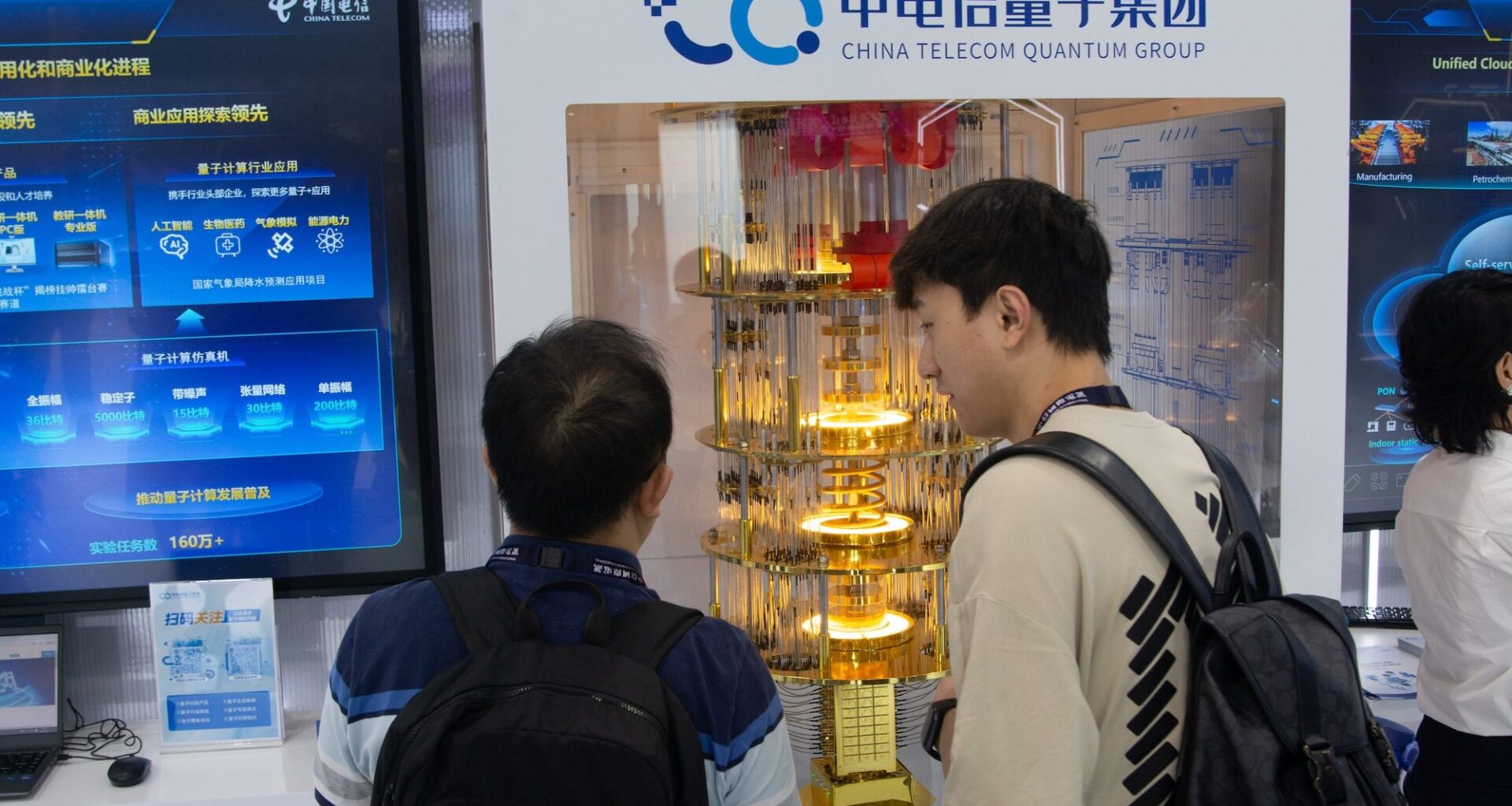World faces quantum risks
Cryptocurrency could be in jeopardy
UAE making preparations
Nobody is exactly sure when quantum computing will break into the mainstream, but just the knowledge that its massively powerful capabilities are coming is already having an impact on the cryptocurrency market.
In early July, the controllers of eight ancient and hitherto untouched bitcoin wallets moved 80,000 bitcoin cash (BTC) – worth more than $9 billion – to new wallets after leaving them dormant for years. The subsequent sale of a portion contributed to a 5 percent drop in bitcoin prices.
The reason for the transfer, many speculate, is the risk that quantum computing represents to the security of traditional cryptocurrency wallets. That could be a sign of what is to come.
Quantum computing’s rise could dismantle the cryptocurrency ecosystem that countries such as the UAE have built.
BlackRock, the giant US asset manager, has warned that breakthroughs in quantum computing could threaten the security foundations of bitcoin.
But the good news is that the UAE is already preparing, experts have told AGBI.
“The risk of quantum attacks is with us today,” Kevin Bocek of cybersecurity provider CyberArk said.
Adversaries can execute “harvest now, decrypt later” attacks: collecting inadequately secured data now to decrypt – digital lockbreaking – when quantum computers are ready, explained Bocek.
How that decryption works is technical, but imagine flipping a coin. It will either land on heads or tails, but while in the air it is neither heads nor tails, but a probability of each.
Digital – conventional – computers deal with the heads or the tails: binary code written in ones or zeros. Quantum computers, however, deal with the state in which the coin is being flipped. Neither heads nor tails, the “coin” can be both heads and tails, and any combination thereof simultaneously. This is fundamentally different from existing computers and the security architectures built around them.
Quantum computers can solve complicated statistical problems. In 2024, a Google quantum computer performed in five minutes a calculation which would take most supercomputers longer than the age of the known universe to solve.
This has existential implications for digital assets, because the majority of crypto wallets and currencies such as bitcoin are locked behind cryptographic keys which are readily breakable by a quantum computer.
“On-chain PQ [post-quantum] migration planning remains the thinnest layer across the board,” warned Jawad Ashraf, CEO of AI-powered blockchain company Vanar Chain – meaning institutions’ plans to protect assets stored on the blockchain from quantum risks are weak.
“A credible quantum break would instantly undermine trust, force emergency migrations and destabilise both domestic and cross-border financial infrastructure,” Ashraf said.
As of 2025, there are about 100 to 200 quantum computers in use globally, though McKinsey & Company expects that figure to rise to 5,000 in 2030.
The UAE is relatively well prepared.
“Awareness is high at the policy level,” Ashraf said.
The UAE’s sovereign digital asset AE Coin and its backers operate under a national framework that already mandates post-quantum cryptography for critical infrastructure.
The UAE’s 2024 Cryptography Executive Regulation outlines exactly how entities working in the crypto sector, such as exchanges or coin providers, must secure for the post-quantum world.
Further reading:
While Vara, Dubai’s digital assets regulator, has not mandated quantum-secure security arrangements, it has been strengthening cybersecurity standards.
One problem is that nobody knows when quantum computing will arrive. A Google quantum researcher warned in May that the quantum resources needed to break widely used encryption methods have been overestimated. But others think arrival could be imminent.
That uncertainty has left some smaller entities avoiding the issue, leaving data vulnerable to “harvest now, decrypt later” attacks.
“Taking steps today with existing technology will mitigate this risk: moving to quantum-resistant cryptography solves this problem,” said CyberArk’s Bocek.

